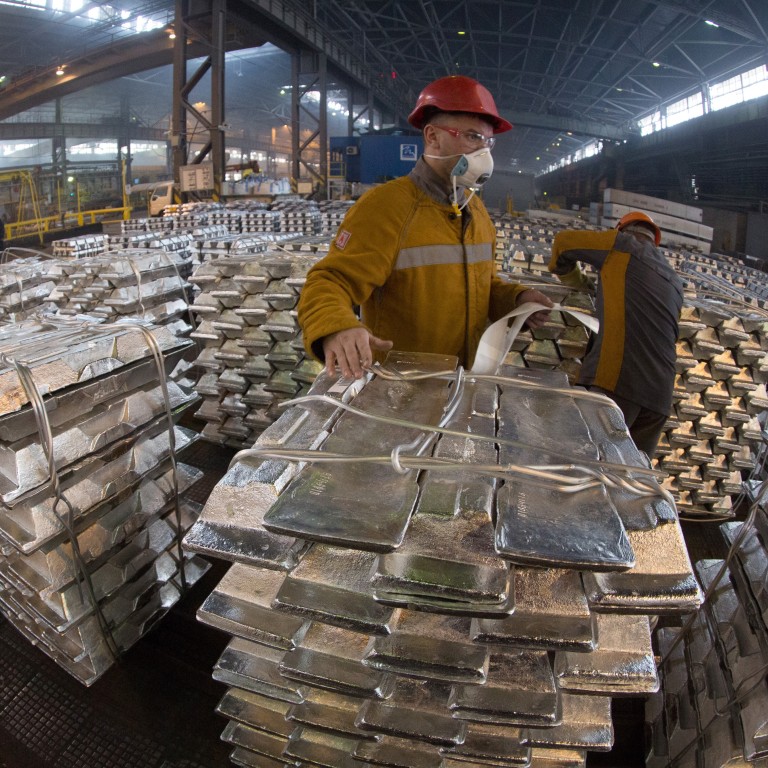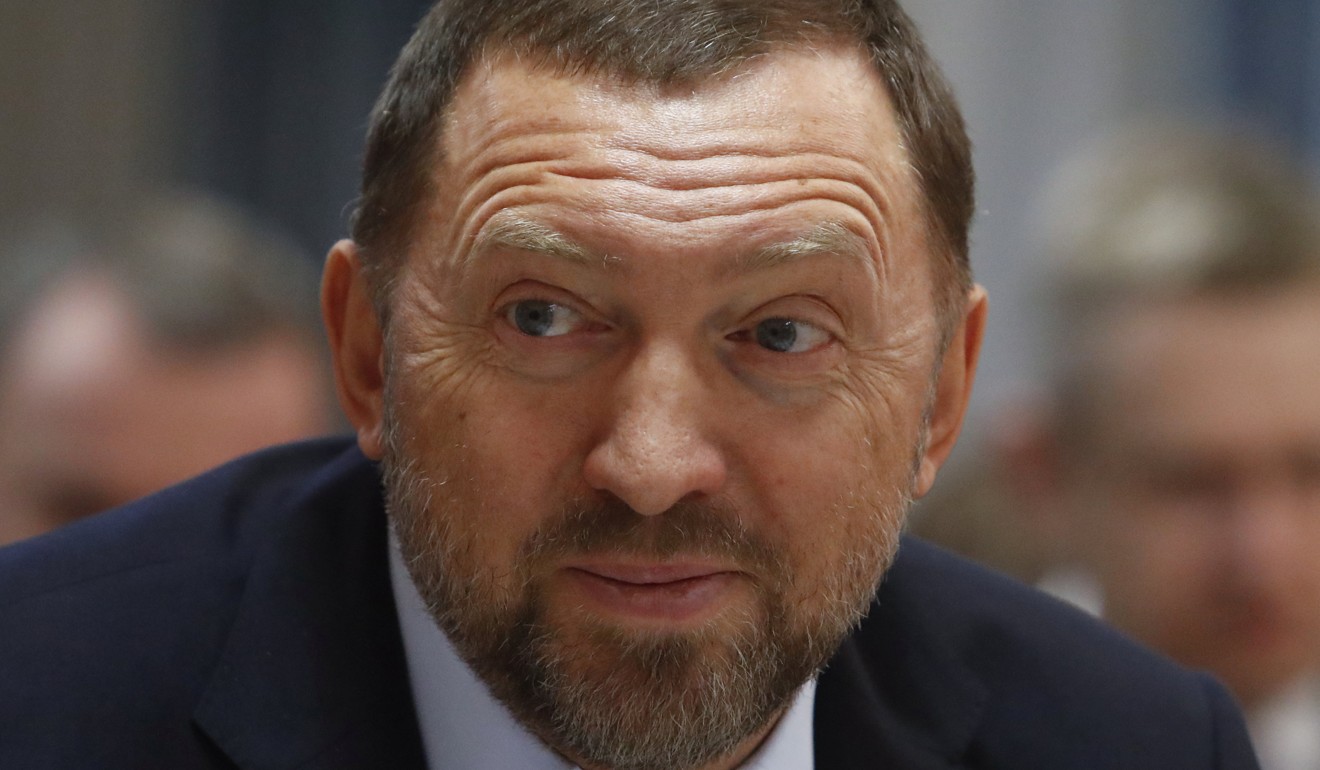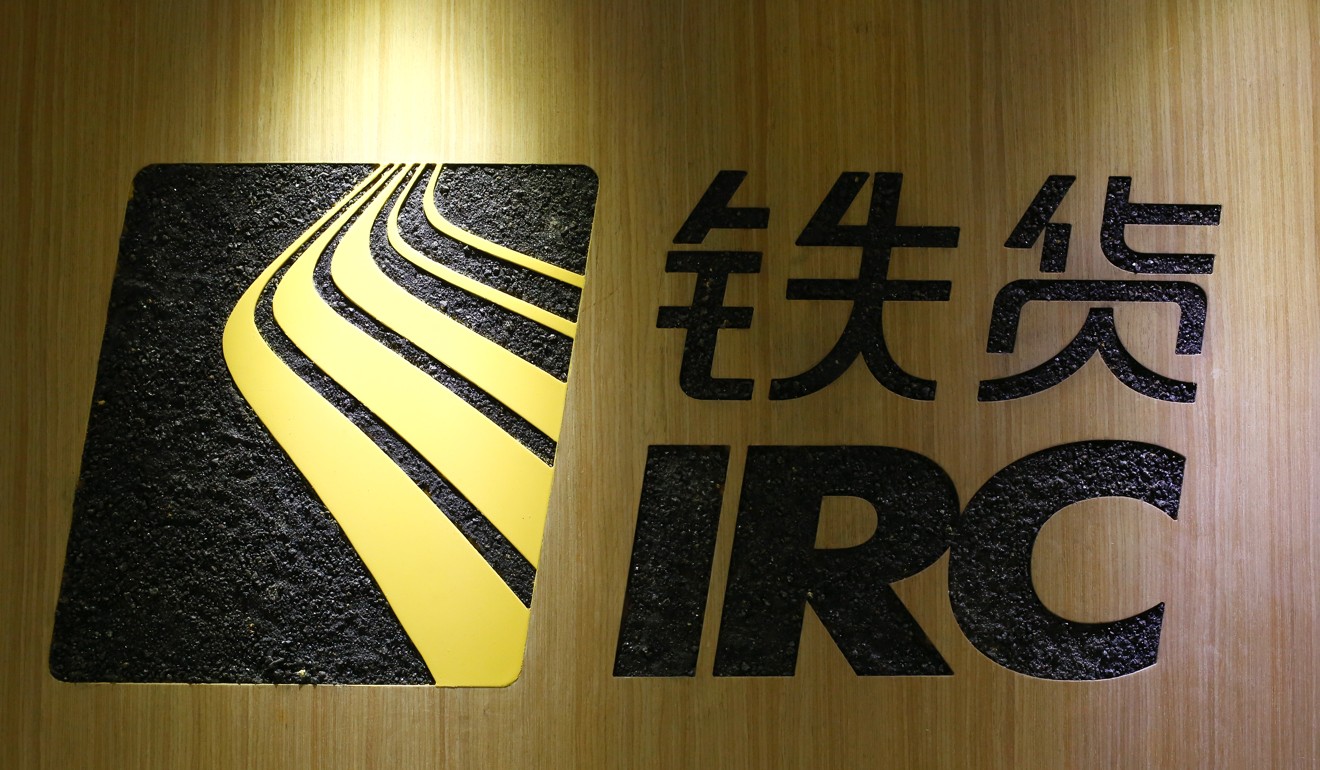
Why these two Russian metal stocks are forging their way back into Hong Kong investors’ hearts
- Rusal shares closed at HK$3.84, a ten-month high, on Monday
- Shares in east Siberian iron ore miner IRC have jumped by 136 per cent since January 2018
Shares in Rusal, the world’s second-largest aluminium producer, have surged by 71 per cent since the United States signalled its intention seven weeks ago to lift sanctions against the company. But can the Hong Kong-listed stock rise further?
US sanctions-hit Rusal rises in Hong Kong on new CEO appointment and board reshuffle
“Rusal trades on very depressed multiples – 3.4 times this year’s estimated earnings and 2.8 times the enterprise value multiple over earnings before interest, taxes, depreciation and amortisation post sanctions. A deep discount on both global and even Russian peers,” Bank of America Merrill Lynch analysts said in a note last week. The benchmark MOEX Russia Index trades at a multiple of 5.8.
Rusal shares closed 3.5 per cent higher at HK$3.84, a ten-month high, on Monday. The analysts suggested a target price of HK$5.5, which they said represents a 30 per cent discount on its global peers, and reflects its “complicated shareholder history and structure”. They said Rusal was a high-risk stock because of its higher geopolitical risk exposure compared with peers.
Meanwhile, analysts at brokerages Citi, BCS and Renaissance Capital and independent research provider AlphaValue have given target prices that range from HK$4.18 to HK$4.6 for Rusal, which closed at HK$4.64 a day before it was hit by the US sanctions in April 2018.
Deripaska is also obliged to hand over any voting rights above 35 per cent of En+ shares to a trust that must vote in the same way as most shares held by shareholders other than him. En+ has a 57 per cent stake in Rusal.

A reshuffle also saw eight seats on En+’s 12-member board occupied by directors independent of Deripaska. “Such a structure should shift the power to minority shareholders,” the BOFAML analysts wrote. “We see this development as a positive for Rusal’s governance.”
Elsewhere, IRC, an east Siberian iron ore miner that supplies steel mills in northeast China, on Monday closed 0.6 per cent lower at 15.6 HK cents after trading as high as 16.5 cents, a 10-month high.
Its shares have jumped by 136 per cent since last January, propelled by iron ore prices that have surged to their highest since 2014 on supply concerns.
Brazil’s Vale, the world’s largest iron ore producer, has been forced to suspend operations at a mine responsible for about 9 per cent of its output following a deadly waste dam collapse on January 25.

Iron ore futures on the Dalian Commodity Exchange hit a record of 652 yuan a tonne on Monday, after rising by their daily limit in the first trading session after the week-long Lunar New Year holiday, according to Reuters.
“As of now, the production loss is expected to exceed 40 million tones … one cannot rule out the possibility of further suspension of other mines initiated by Vale or the government,” analysts at Guotai Junan Futures Industry Service Institute said in a note.
China imported 1 billion tonnes of the steel smelting ingredient last year.

